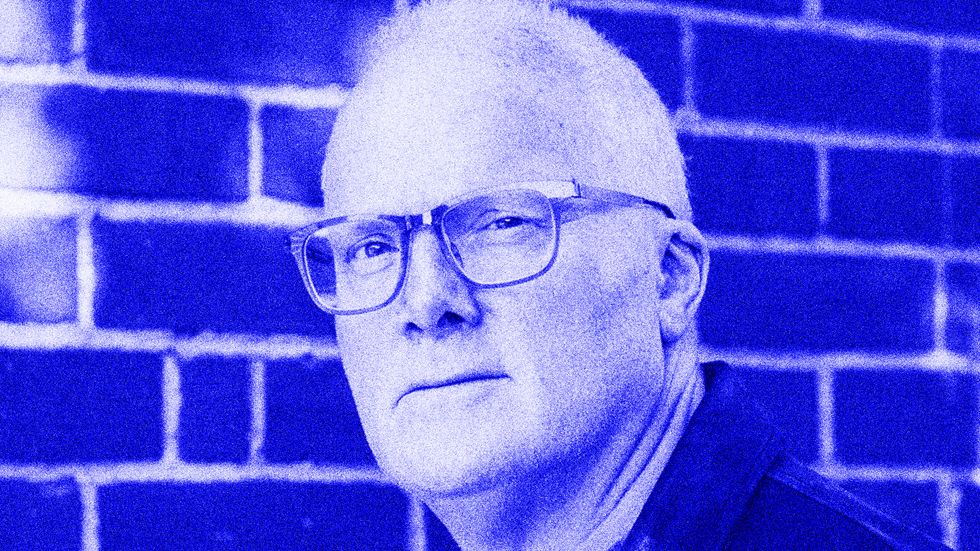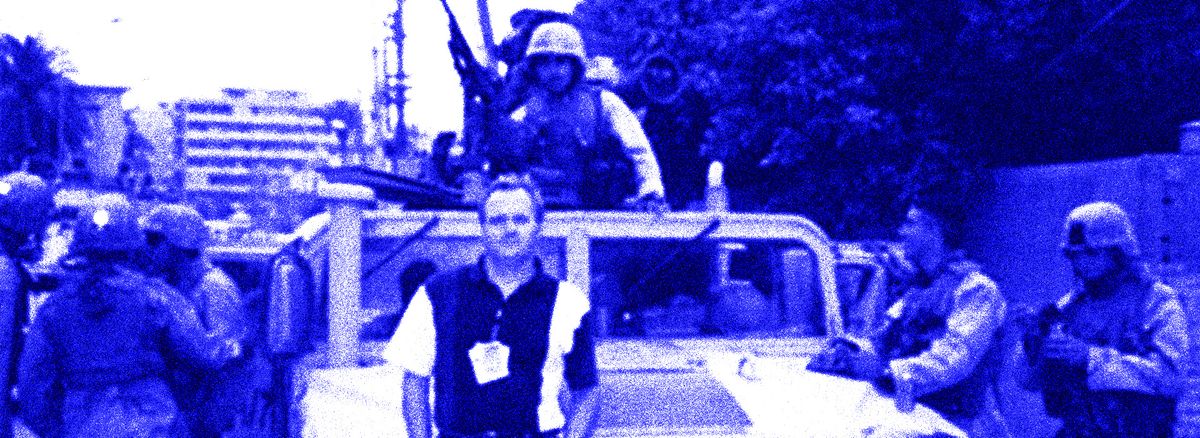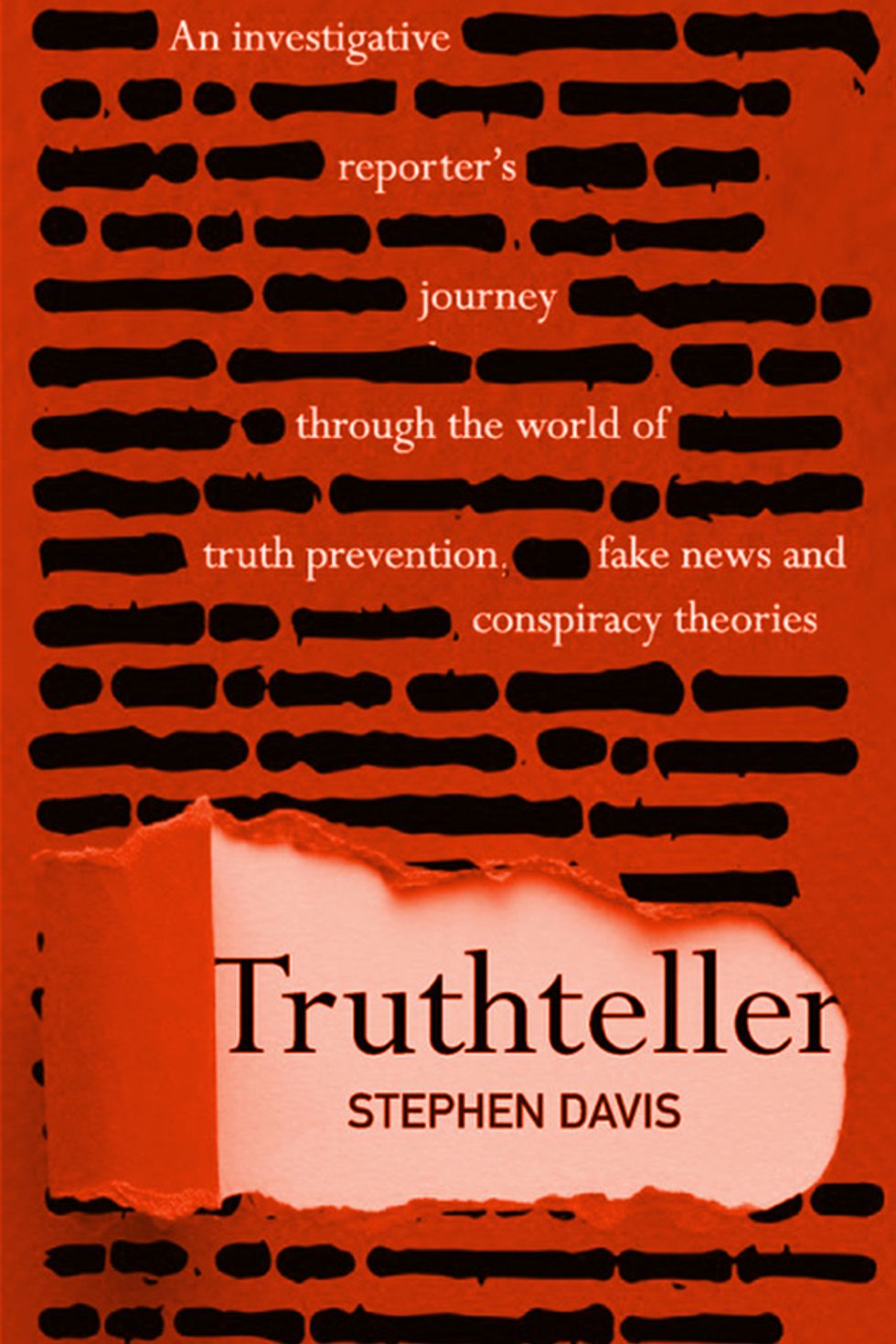Stephen Davis has dedicated his life to discovering mysteries left unanswered, intentionally or not.
Award-winning journalist and educator Stephen Davis is still driven by a desire to expose the facts and to bring justice to those who have none. In a 30-year career he has unpicked many "mysteries", travelling the world as an investigative reporter for TV, magazines and newspapers.
In the latter part of his career, he has witnessed the rise of fake news, deep fake technology and big lies - falsities that when repeated enough times become 'real' in the minds of consumers. These disturbing global trends inspired him to write a new book, Truthteller, in which he assesses the prospects for truth in this emerging environment.
"So you tell a big lie, and initially people might not believe you, but you repeat it again, and again, and again, and the numbers that believe in you will go up".
This is an anathema to Davis, an investigative journalist who believes in digging deep, never giving up on a story. For Davis, important journalism is about getting to the truth, whether that be global or local.

'The idea of bringing justice to people who have none ... of uncovering secrets people don't want you to find out is what really motivates me.'
He has never let go of the mystery surrounding the disappearance of a small-time Sydney airport rental car worker in 1995. Twenty-one-year-old Richard Sajko's body has never been found and to this day Davis stays in touch with Sajko's mother and follows up leads. A 2014 coronial inquiry found the original police investigation was marred by "deficiencies" and "missed opportunities".
"Nobody's been held accountable to a crime in which a man confessed, by the way, and stories like that definitely make me angry," he says, "I am driven by that anger to expose facts."
His BBC documentary investigation of an alleged British MI6 cover-up of what happened to British Airways Flight 149 in 1990, and the fate of passengers taken hostage by Saddam Hussein, and used as human shields, sparked calls for an inquiry.
"The idea of bringing justice to people who have none, the idea of uncovering secrets that people don't want you to find out is what really motivates me," he says.
As media organisations struggle in the new economic environment where Google and Facebook vacuum up their advertising dollars, the appetite for financing deep-dive investigations is waning. Yet, he says, there has never been a more important time for sifting fact from fiction.
"Our ability to keep up with [false information] is limited, and the group that you rely on to be the gatekeepers – journalists - there are fewer of us around, and fewer investigative reporters," says Davis.
As for the "new gatekeepers", the social media platforms from which so many people get their news, Davis is not a fan, especially of Facebook, recently calling it the most 'socially irresponsible company' in an ABC interview.
"[Facebook] has to stop thinking of itself as a social media company, and think of it as what it is, and that's a publisher and broadcaster, and take responsibility for its content," says Davis, who now lives in Dunedin, New Zealand.
Given the ease with which we can access information, Davis says, fake news will appear more frequently, and travel faster. With time, the spread of false information will worsen. The speed with which data is uploaded to the internet is much faster than it has been in previous years, and it will not stop.
"It's been shown by studies that falsehoods travel faster than facts. If a story seems too good to be true, maybe it is too good to be true."
Separate to fake news is the emerging technology that allows deep-fake videos. Deep-fake technology uses artificial intelligence to replicate an individual's face on camera and enable someone to use that replicated face to do, and say things they have not done or said.
The fake news phenomenon has also enhanced the rise of conspiracy theories, and the negative impacts that can have. One such theory emerged during the 2016 US presidential election campaign concerning a pizza restaurant in Washington DC which was allegedly home to "paedophiles, keeping children in the basement".
"See it's laughable, except it's not because twice now someone has turned up with a gun at the restaurant ready to do harm because he believed the craziness online," says Davis.
Davis believes that while social media sites need to develop better parameters to combat the influx of fake news and deep-fake technology, individuals also have a responsibility to be conscious of what they consume and they should search for sources and factcheck to form their own opinions.
However, the "truthteller" acknowledges, that's not always easy.







Afraid of an egg: the tyranny of living with social media's body standards